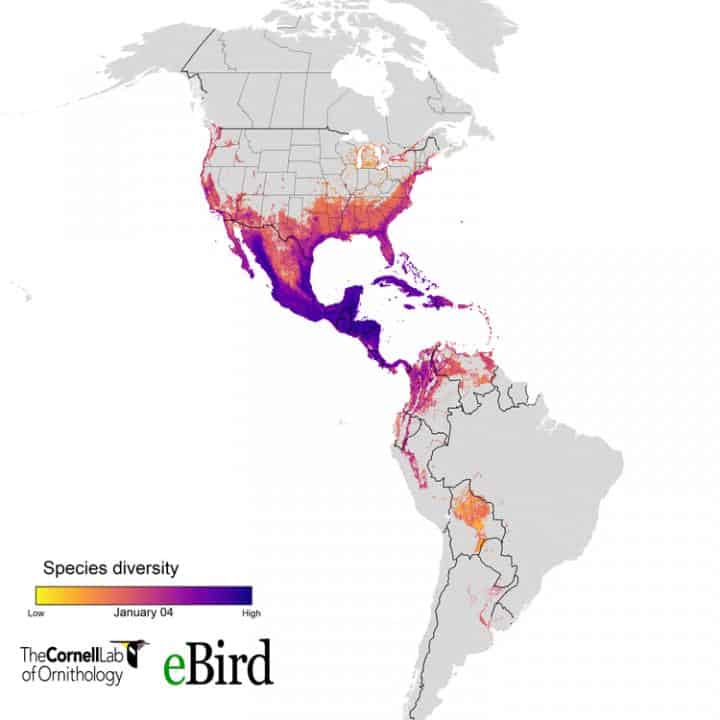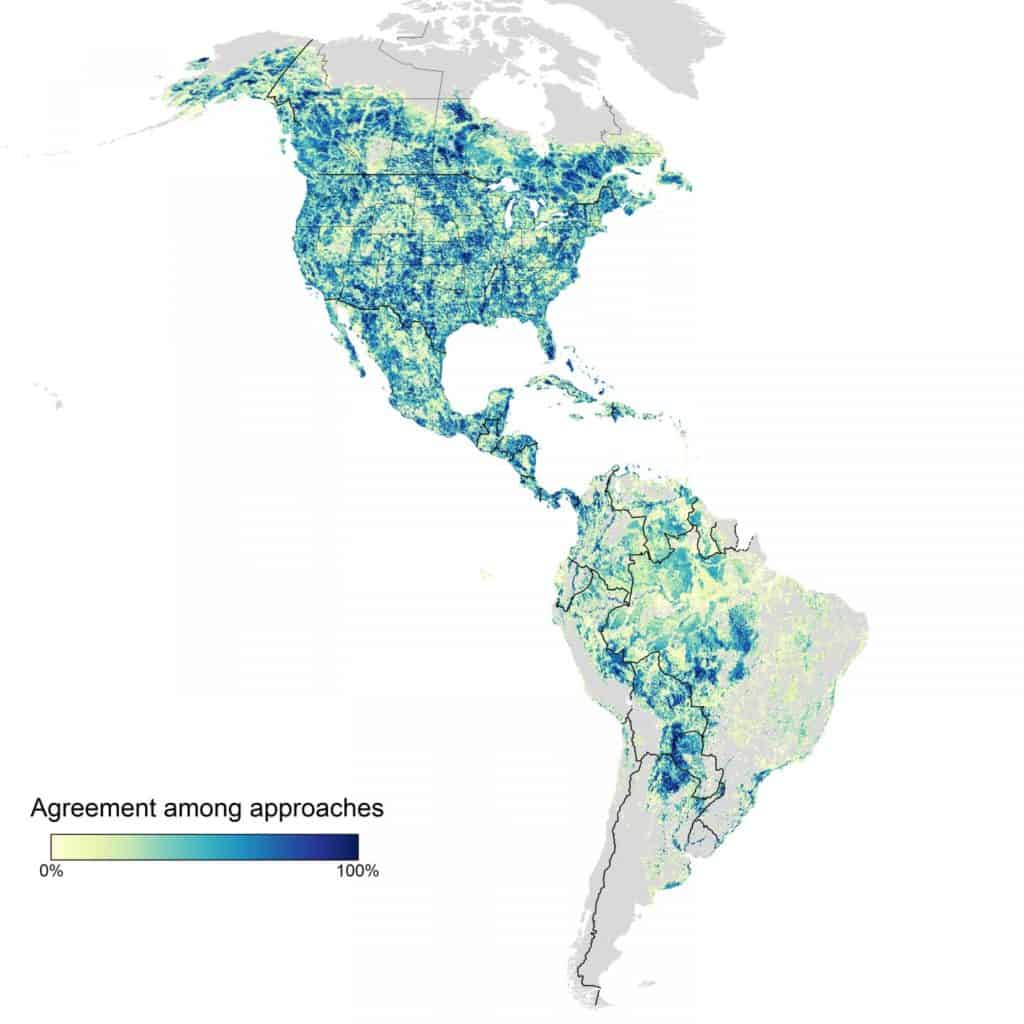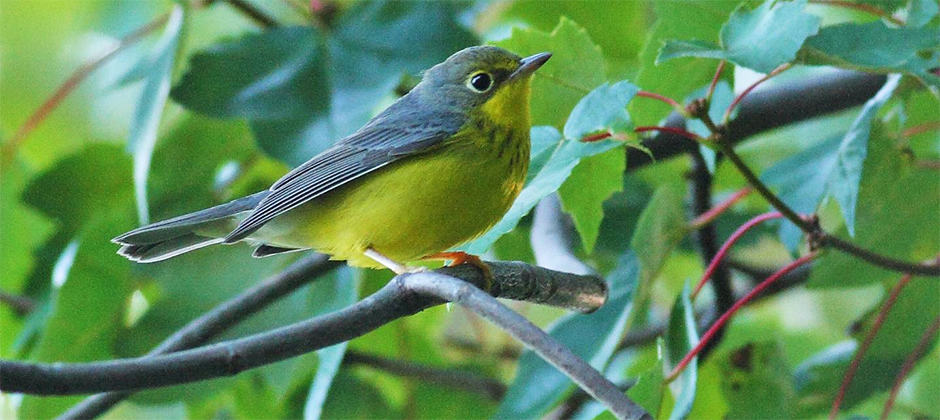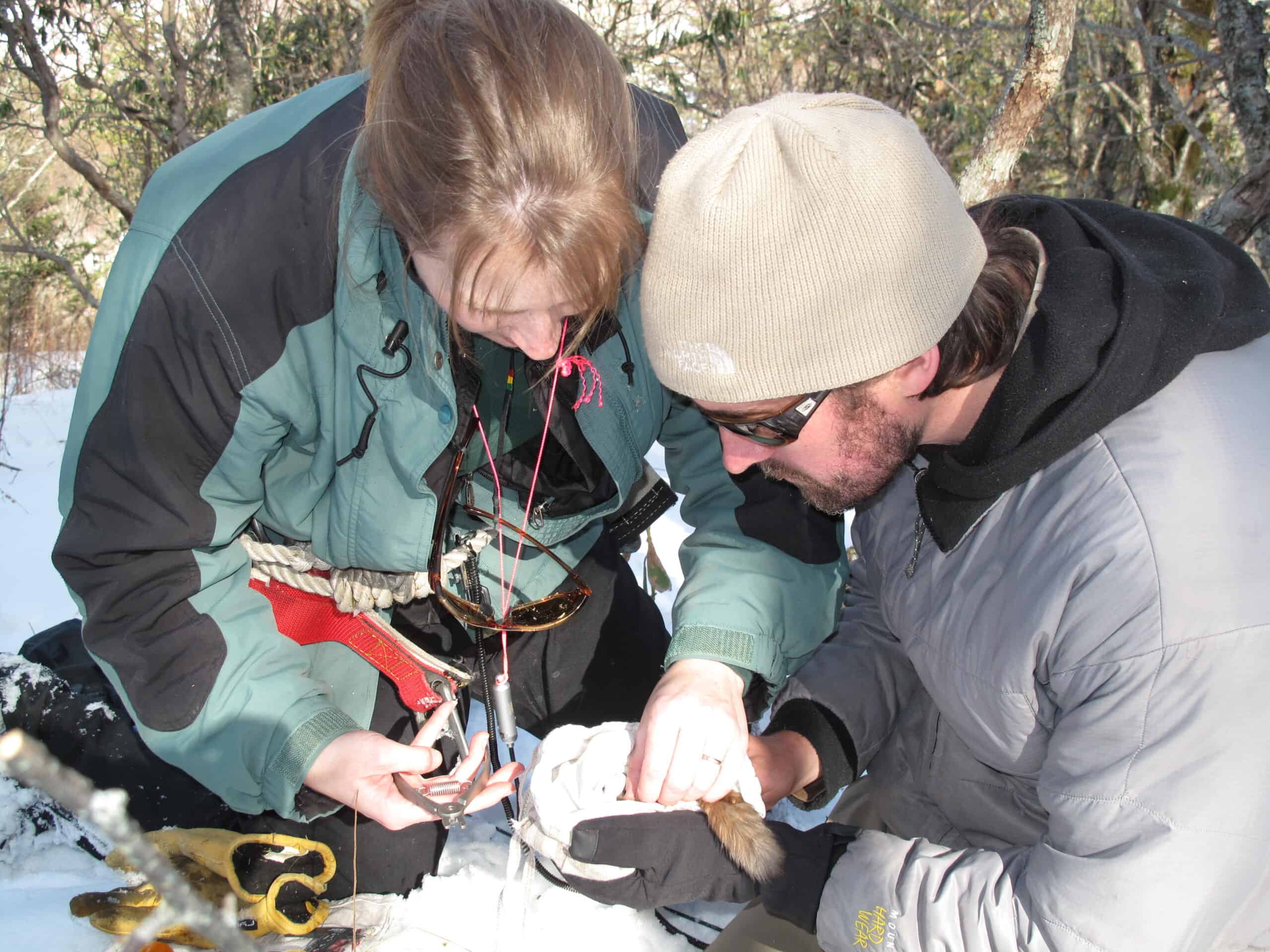Share this article
eBird program informs songbird conservation across Americas
Citizen scientists involved in the eBird program are helping researchers identify the most important regions to focus conservation efforts across the Americas.

This gif shows the ways that songbird diversity changes across the Americas over a year. ©Species maps provided by eBird, animation by Richard Schuster, March 2019
“We need action, but we need to understand where to focus our effort,” said Amanda Rodewald, a professor and senior director of conservation science at the Cornell Lab of Ornithology. Rodewald is one of the authors of a study published recently in Nature Communications that examines the ways that Cornell’s eBird, a global citizen science database, can inform smarter conservation efforts and help conserve 30 percent of neotropical migratory songbirds.
To conduct the study, Rodewald and her co-authors analyzed data collected by citizen scientists through the eBird program for 117 songbird species such as warblers, orioles and tanagers. By understanding where most birds spend their winters, summers and migratory periods, they hoped to identify the most efficient way to conserve the most birds.
They found that while national parks and other wild spaces are key to conserving habitat for birds in parts of the Western Hemisphere, cropland and other areas used by humans can be just as important. For example, some coffee growing regions in the mountains of South and Central America support diverse and abundant populations of neotropical migratory birds.

This map shows the most important locations for conserving 30 percent of the population of each species examined. The darker the blue, the more consistently important was the location. ©Graphic by Richard Schuster
“Working landscapes can be really important and are critical to include in our strategic landscape planning,” Rodewald said. “It underscores how strategic conservation can include biodiversity conservation and human activity,” she added.
The citizen science aspect of the study is key, Rodewald said,since researchers would never have the budget to follow so many bird species across the Western Hemisphere for a year. For this study, the researchers used about 14 million birding checklists submitted on eBird from 1.7 million locations across the Americas.
“This demonstrates that we can actually use citizen science to be more strategic in conservation,” she said.
Header Image:
Researchers looked at 117 songbird species like the Canada warbler (Cardellina Canadensis).
©Cameron Rognan/Cornell Lab of Ornithology








